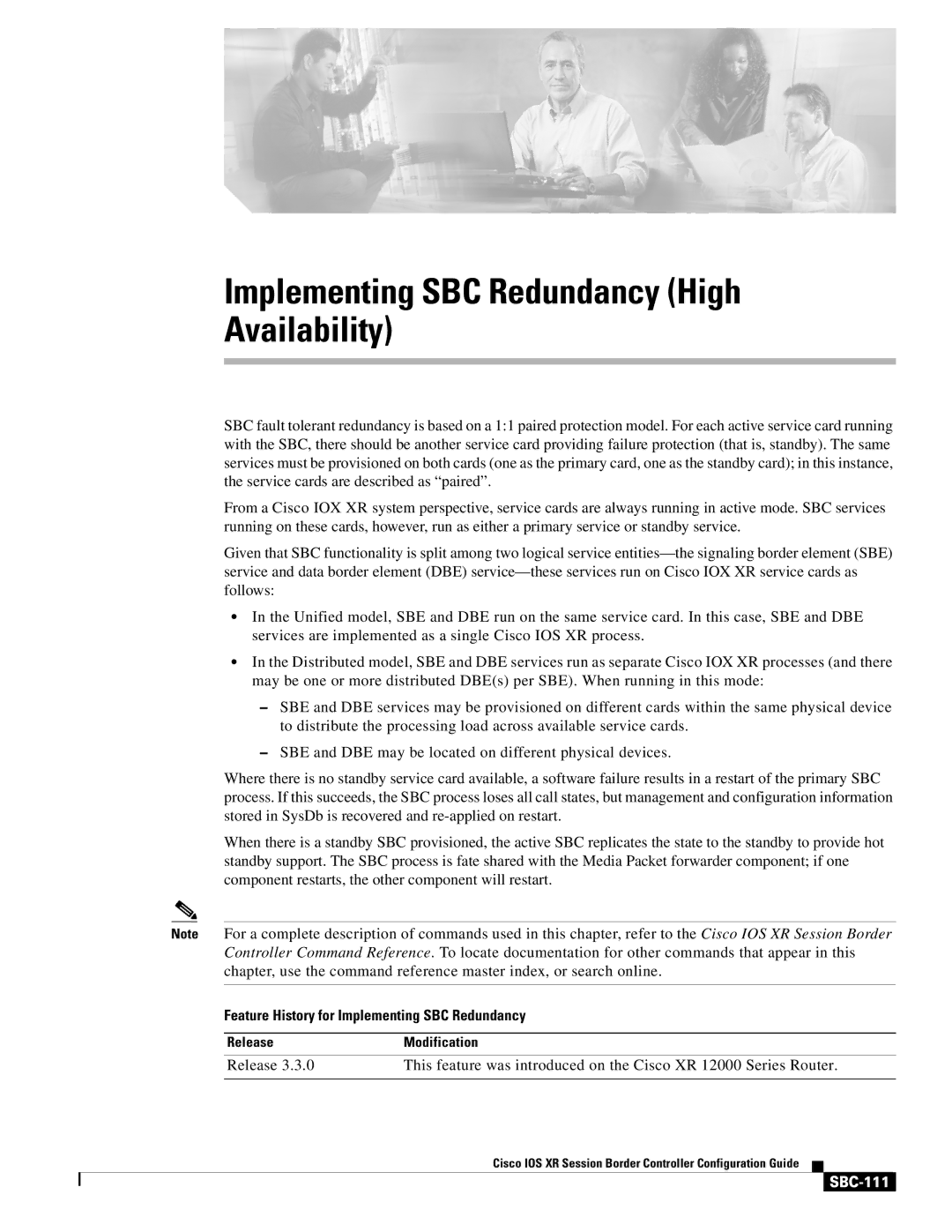
Implementing SBC Redundancy (High
Availability)
SBC fault tolerant redundancy is based on a 1:1 paired protection model. For each active service card running with the SBC, there should be another service card providing failure protection (that is, standby). The same services must be provisioned on both cards (one as the primary card, one as the standby card); in this instance, the service cards are described as “paired”.
From a Cisco IOX XR system perspective, service cards are always running in active mode. SBC services running on these cards, however, run as either a primary service or standby service.
Given that SBC functionality is split among two logical service
•In the Unified model, SBE and DBE run on the same service card. In this case, SBE and DBE services are implemented as a single Cisco IOS XR process.
•In the Distributed model, SBE and DBE services run as separate Cisco IOX XR processes (and there may be one or more distributed DBE(s) per SBE). When running in this mode:
–SBE and DBE services may be provisioned on different cards within the same physical device to distribute the processing load across available service cards.
–SBE and DBE may be located on different physical devices.
Where there is no standby service card available, a software failure results in a restart of the primary SBC process. If this succeeds, the SBC process loses all call states, but management and configuration information stored in SysDb is recovered and
When there is a standby SBC provisioned, the active SBC replicates the state to the standby to provide hot standby support. The SBC process is fate shared with the Media Packet forwarder component; if one component restarts, the other component will restart.
Note For a complete description of commands used in this chapter, refer to the Cisco IOS XR Session Border Controller Command Reference. To locate documentation for other commands that appear in this chapter, use the command reference master index, or search online.
Feature History for Implementing SBC Redundancy
ReleaseModification
Release 3.3.0 | This feature was introduced on the Cisco XR 12000 Series Router. |
|
|
Cisco IOS XR Session Border Controller Configuration Guide
